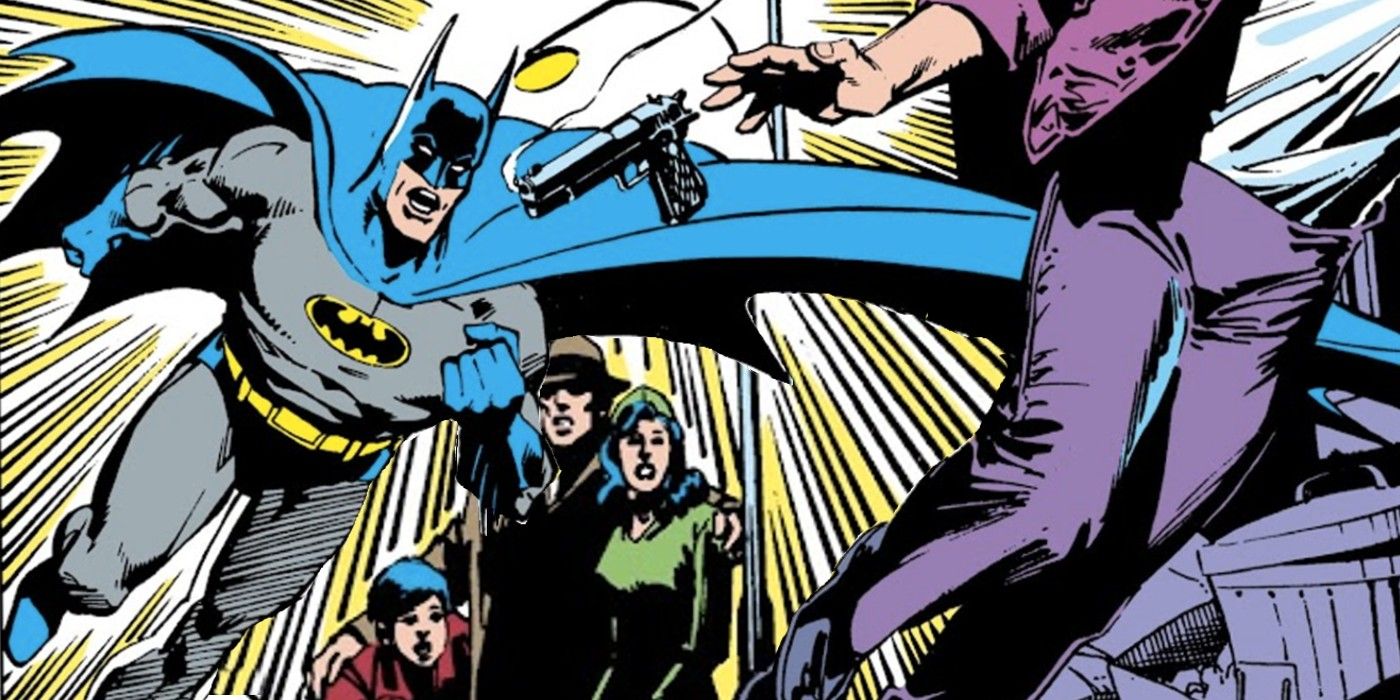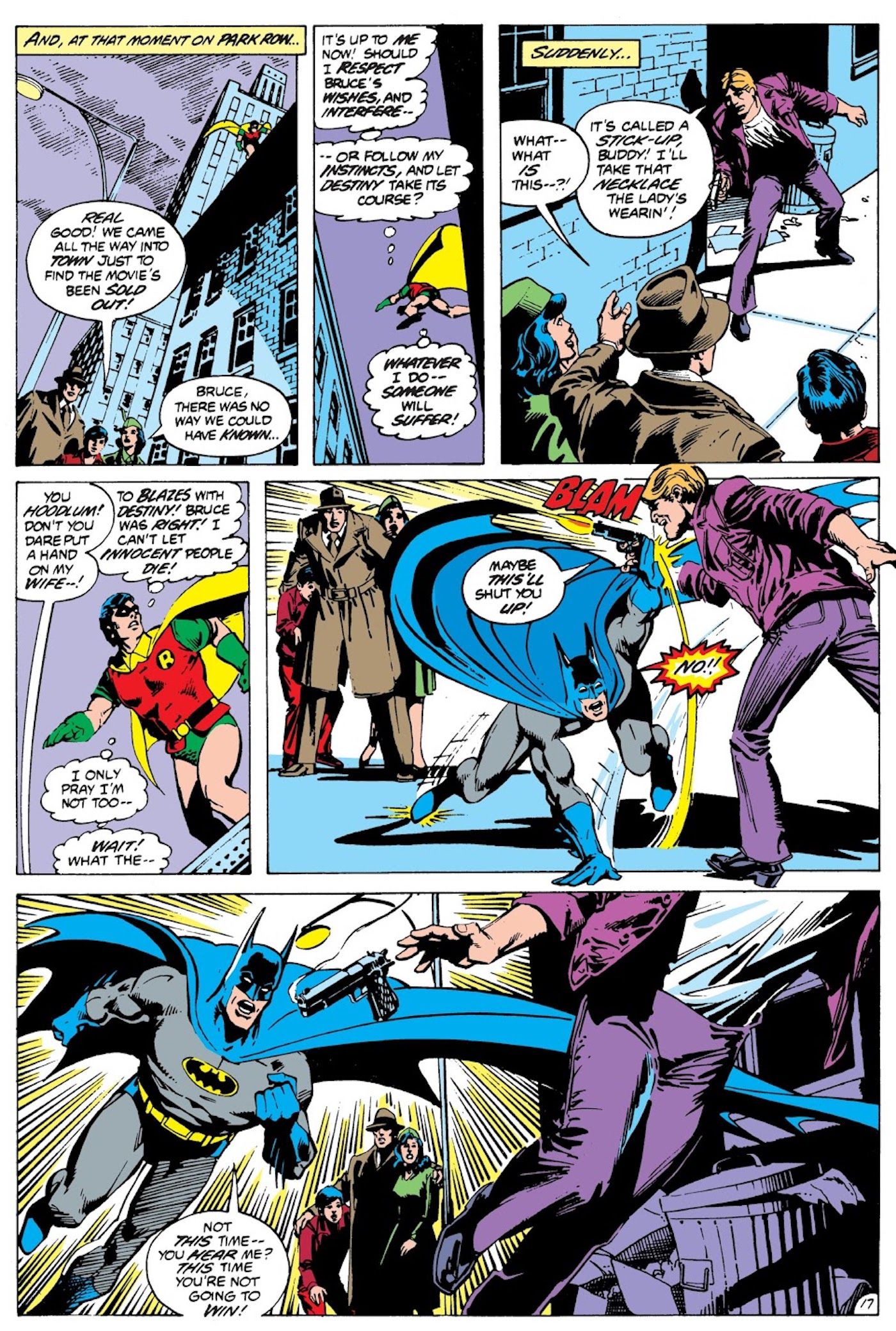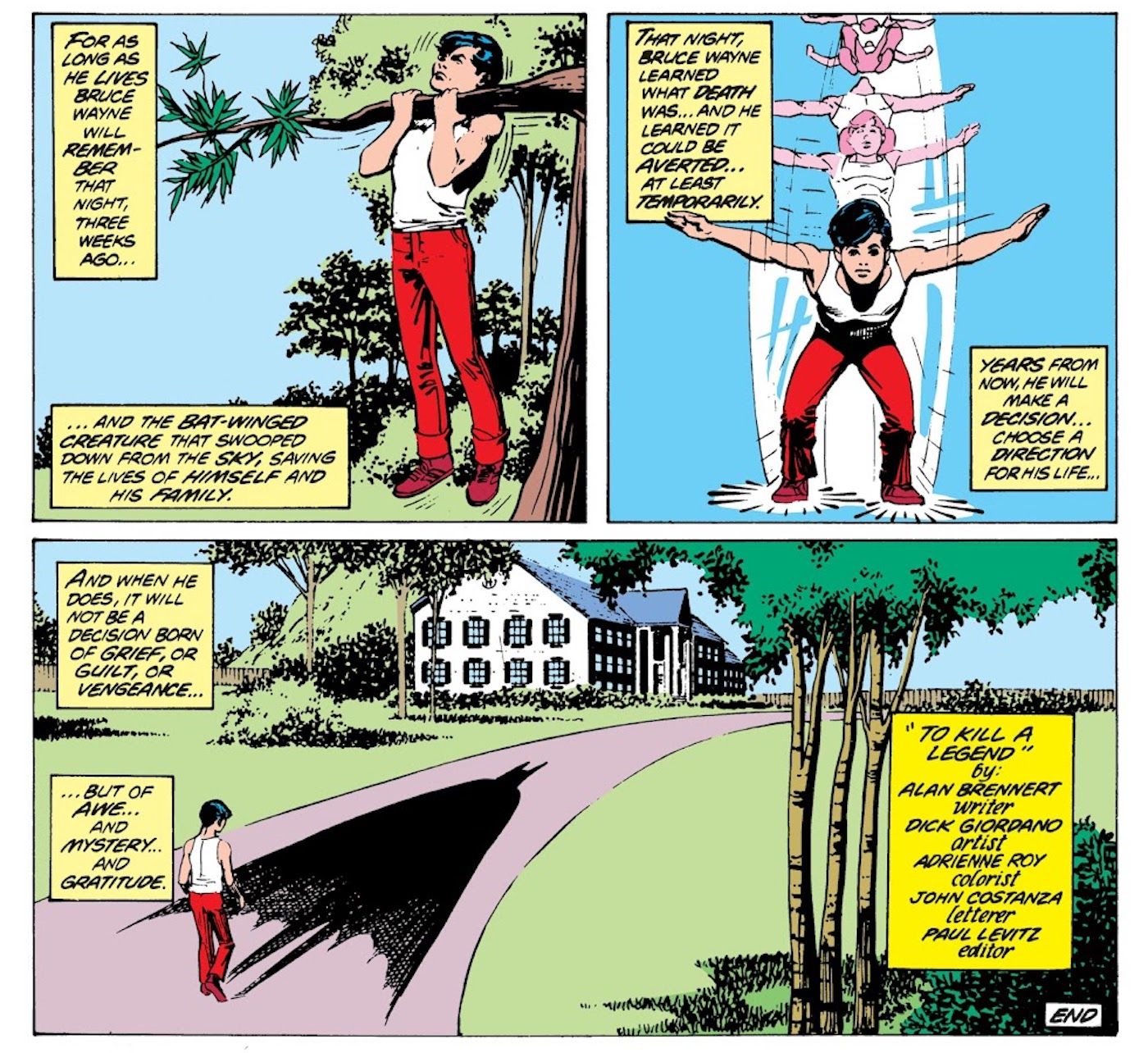The deaths of Thomas and Martha Wayne in Crime Alley was the defining moment of Bruce’s life, but Batman was given one chance to prevent that tragedy, and it changed everything.
Milestone moments in comics are usually commemorated with a huge cast of popular characters, a noteworthy collection of writers and artists, and a standout story with powerful themes. The 500th issue of Detective Comics is no exception, and it contains one of the most popular Batman stories of all time. The story takes place on the 20th anniversary of the death of Bruce Wayne’s parents in the infamous Crime Alley. The mysterious Phantom Stranger suddenly appears and presents Batman with a once in a lifetime opportunity. Batman is transported to a parallel Earth where he can still prevent the death of Thomas and Martha Wayne.
This Detective Comics #500 story, created by Alan Brennert and Dick Giordano, was ominously titled “To Kill A Legend” because it dared to ask if Batman could survive without Bruce’s tragedy. Batman finds peace in the knowledge that an alternate version of himself will not be haunted by the specter of death. Robin accompanies Batman on this journey where he discovers that this alternate reality is a world without superheroes. In fact, the world is devoid of any heroic mythology from the adventures of Robin Hood to the epic poems of Gilgamesh. Robin is convinced that the death of the Waynes is a necessary evil to create a hero, but Batman rejects this pessimistic logic and performs an act of defiant salvation.
Who Would Batman Become Without The Death of His Parents?
The ethical dilemma of saving Bruce’s parents gets to the heart of the Batman mythos. His primary character motivation is preventing anyone else from experiencing his tragedy. So what would a Batman without his tragic origin story even look like? In the story’s epilogue, it’s revealed that the alternate Bruce is inspired by his savior to become a new version of Batman “not born of grief, guilt, or vengeance but of awe, mystery, and gratitude.” Sparing another Bruce from the despair and loneliness that forever defined him remains one of Batman’s greatest achievements. This world finally has a hero, and it’s a new kind of Batman, one inspired by a true act of heroism bolstered by the love and support of his parents.
Batman Is A Champion of Justice, Not a Creature of Vengeance
The notion that Bruce’s parents needed to die in order to create Batman is fundamentally flawed. Batman is never truly alone because he relies on the support of his friends and allies. Therefore, the mere concept of the Bat-Family disproves the notion that only an orphan can be Batman. Batman is many things, but he is not a pessimist. The Dark Knight steadfastly holds onto a glimmer of hope to fuel his unrelenting war on crime. Batman is a champion of justice, not a creature of vengeance. Removing Bruce’s core tragedy by saving his parents doesn’t deprive the character, instead it strips away the guilt, rage, and self-loathing holding Batman back.



